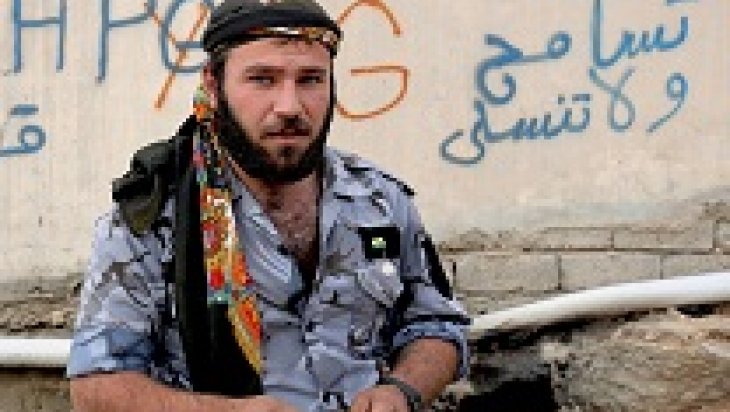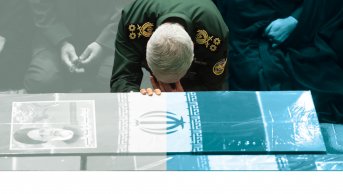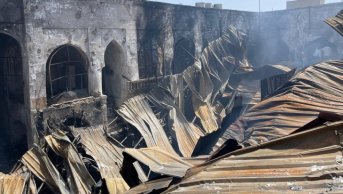The Effect of the Arab Uprising(s) on the Kurds of Syria

The current political landscape in the Middle Eastern region is pretty much disturbed by the repercussions the Arab Uprisings (December 2010) have brought upon the regional balance of power (which has been revived). The theatre of operations has primarily affected severely both the Kurds of Iraq and Syria along with the Sunni Arabs to the advantage of Tehran. On the other hand, Syria is still paying the highest cost in view of its alliance with Tehran and the seemingly unending bloodshed and descent into chaos. Therefore according to the Turkish Prime Minister, Ahmet Davutoğlu, what Ankara saw with the crisis in Syria was a “new Middle East about to be born”.
However and contrary to Turkish expectations, Bashar Al-Assad’s unparalleled strength both in warfare and weaponry, and possibly less in manpower, as well territorial control remains powerful. Yet, a post- Assad Syria, either federal or confederal but united, with or without Assad matters little in the face of the daily extinction of the citizenship. The current warfare has obviously advantages, more than any for Tehran as it isolates its domestic and foreign policy problems and takes the focus off its own territory and crisis. Yet, the question of whether Tehran has the capacity to sustain this expansion throughout the region via support of its Shi’a population around the world from Baghdad, considering its latest interference, to Sana’a, is debatable.
As far as the Kurds of Syria is concerned the eruption of the Syrian crisis (March 2011) as consequence of the so called ‘Arab Spring’, in terms of the transforming changes introducing in the region, while it does not constitute the outset of Syria’s Kurds renaissance; yet it explicitly strengthened the Kurdish movement in due course, contrary to expectations following the capture of the PKK’s leadership (February 1999) and thereafter the eruption of the Iraq War (March 2013). It was during this period that the PYD (The Democratic Union Party) in Syria was formed as well as PJAK (Free Life Party in Kurdistan) in Iran was established. The Kurds in Syria have partly broken their prolonged silence for the first time in the twenty-first century long before, and in specific since the 2004 Kurdish uprising in Qamishli during a football match (12 March 2004) between Arabs and Kurds. According to Abdullah Öcalan, the on-going peace process in Turkey cannot be treated independently from the developments in Western Kurdistan (Rojavayê Kurdistan).
Both Syria as a central state actor and the Kurds in Syria as critical non state entity are formative elements in Middle Eastern politics. The establishing of the autonomous cantons in North Syria in November 2013 is steadily unfolding the role of the Kurds as a considerable determinant both in the regional and international state foreign policy context and in the formation of the new Middle Eastern order. Kurdish renaissance has been boosted precisely by the phenomenon of the Arab Uprisings, which eventually fits within the broader context of George W. Bush’s enduring ‘Middle East Partnership Initiative’ (December 2002) dictated by the US aspirations for regional democratization that has ultimately a positive effect on the region’s Kurdish issues, in search for democratic rights and in an attempt to bring an end to regional despotism, a detrimental factor which has by and large influenced the emergence of multiple players of non-state status.
However, the unity and thus cooperation between Kurdistan Regional Government (KRG) and PKK-PYD actors as interconnected paradigms with regard to their influence and interaction with regional and international players appears imperative as the only condition in addition to the course of the regional events that can guarantee the consolidation of the status of the Kurds in Syria. This dynamic though is two-dimensional. It necessitates the settlement of intra Kurdish differences among the political elites in Syria vis-à-vis views that “the PYD does not represent all Kurds. On the contrary, there are some groups that have been extremely disturbed by the pressure of the PYD. These groups have asked for our help” and it presupposes inter-Kurdish cooperation.
In this context, the consideration of the role of the KRG is needed as the leading Kurdish movement with well-established regional neighbouring and international diplomatic relations can ensure support, whether regional or international, for the facilitation of the Kurdish cause in Syria and can thus affect positively the Kurdish movement in Syria, to the same extent of establishing interactions with the majority of Syria’s Kurds. Such inter-relations would bear greater weight in a potential transformed post-Assad political setting with the Kurds of Syria holding particular importance in achieving autonomy in a settled political system when proximity and thus access to the Mediterranean Sea could upgrade further relations between the KRG and the administration of Syria’s Kurds. In addition, the role of the PKK stands out as an influential factor which can bring KRG and PYD closer so that unity could be ultimately achieved. I thus perceive the relations between KRG, the Kurds of Syria and the PKK as triangular.
Moreover, the elevation of the Islamic State of Iraq and al-Sham (ISIS) as a brake for regional progress and development, along with its incitement of regional and international political interventions constitutes an additional reason as to why the unity of the Kurdish movement as a whole is imperative as probably one of the last regional actors with room for development.
Finally, the effect of the Arab Uprisings on the Kurds in Syria bears a further importance. It favours the role of the regional non-state actors whose impact on regional and international foreign policies has been catalytic enhancing their interrelations and links whereas the interplay between state and non-state entities has become apparent.
This article was published in Ortadoğu Analiz journal with the title of "The Effect of the Arab Uprising(s) on the Kurds of Syria”



